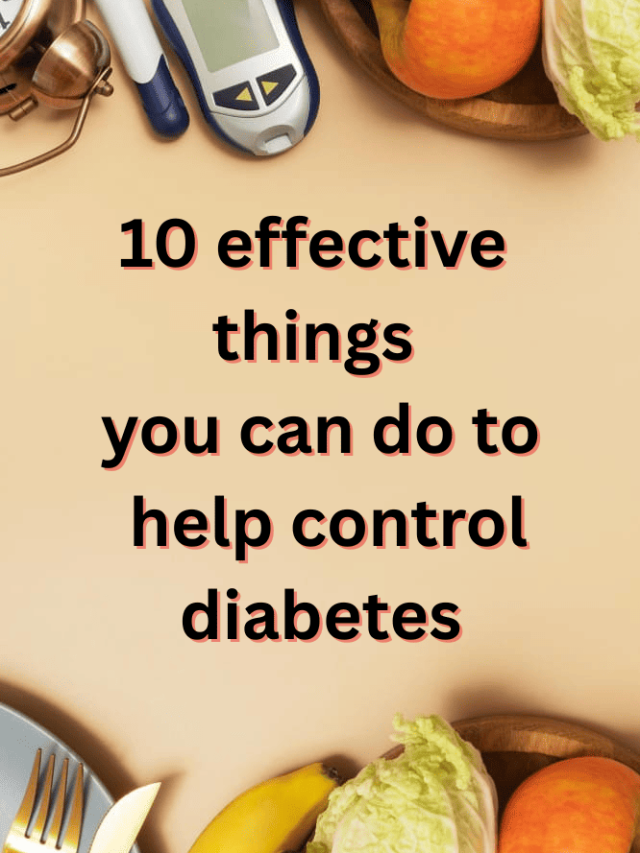You might also like

Food as Fuel: Eating with Intention for Energy and Longevity
In a fast-paced world where convenience often trumps quality, it’s easy to forget that food is more than just something to satisfy hunger—it’s fuel for your body, your brain, and your future. By eating with intention, you can unlock more energy throughout your day and lay the foundation for long-term health and longevity. What Does […]

Bedroom Plants for Health and Wellness: Green Your Space, Boost Your Life
Bedroom Plants for Health and Wellness: Green Your Space, Boost Your Life In today's fast-paced world, creating a calming, health-supportive environment is more important than ever—especially in the space where you begin and end each day: your bedroom. One of the simplest yet most powerful ways to enhance your sleep environment is by introducing houseplants. Not only do they add beauty and tranquility, but many indoor plants also offer real health benefits—from purifying the air to improving your mood and promoting restful sleep.Here’s a guide to the best bedroom plants that support health, wellness, and better living.
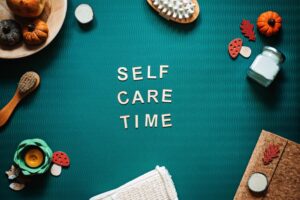
The Science of Self-Care: How Small Acts Lead to Lasting Wellness
In today’s always-on world, self-care is often dismissed as a luxury—something we’ll get to once everything else is done. But science says otherwise. True self-care isn’t about spa days or expensive retreats. It’s about the small, consistent actions we take every day to support our physical, mental, and emotional well-being. 🔬 Why Self-Care Matters (According […]
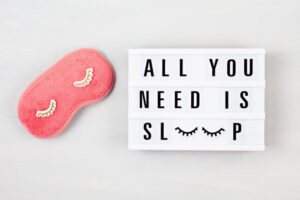
Sleep Smarter: Building Healthy Bedtime Habits for Better Rest
Sleep Smarter: Building Healthy Bedtime Habits for Better Rest In today’s nonstop world, sleep often takes a backseat to deadlines, social media, and late-night Netflix binges. But here’s the truth: quality sleep isn’t a luxury—it’s a necessity. And it’s not just about how many hours you get, but how well you sleep. The good news? A few intentional changes in your bedtime habits can make a big difference.Let’s talk about how to sleep smarter.🌙 Why Sleep Should Be a PrioritySleep is when your body and brain perform some of their most important work. It’s the time for physical repair, memory consolidation, emotional processing, and immune strengthening. Skimping on sleep—or getting poor-quality rest—can lead to fatigue, irritability, trouble focusing, weight gain, and even long-term health issues.If you’re feeling tired but wired, struggling to fall asleep, or waking up feeling unrested, your sleep habits might need a tune-up.

“The Power of Breath: Simple Breathing Techniques for Stress Relief”
"The Power of Breath: Simple Breathing Techniques for Stress Relief" Breathing is something we all do—automatically, constantly, and often without even noticing. Yet, when done consciously, breathing becomes a powerful tool for improving both physical health and emotional well-being. You breathe over 20,000 times a day—but how often do you pay attention to it? In moments of stress or anxiety, your breath becomes short and shallow. This signals your body that you're in danger, even when you're not. The good news? You can reverse that reaction—just by breathing on purpose.Why Breathing Helps with StressYour breath is one of the few automatic bodily functions you can consciously control. When you're anxious or overwhelmed, your body activates the sympathetic nervous system—also known as the “fight-or-flight” mode. Intentional breathing activates the opposite: the parasympathetic nervous system, which helps you rest, digest, and reset.Just a few minutes of mindful breathing can:1. Lower your heart rate2. Reduce muscle tension3. Decrease blood pressure4. Improve mental clarity
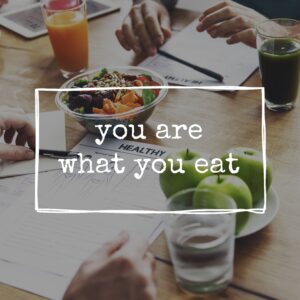
20 Wellness tips for a healthy lifestyle
20 Wellness tips for a healthy lifestyle 1. Start Your Day with a Glass of Lemon Water 2. Wake Up with a Morning Stretch 3. Open Up to Fresh Air and Natural Light 4. Support Your Health with Daily Supplements 5. Daily Walking 6. Get a Fitness Tracker 7. Fill Half Your Plate with Veggies 8. Use Extra Virgin Olive Oil 9. Take the Stairs 10. Load up on herbs and spices 11. Eat Nuts and Seeds 12. Get In Your Daily Affirmations 13. Practice Good Dental Care 14. Take a Spoon of Apple Cider Vinegar Daily 15. Get Some Quality Sleep 16. Spend Time in Nature 17. Practice Mindfulness 18. Be Kind 19. Focus on Your Vitamin D Levels 20. Keep Smiling! olive oil herb nuts seed affirmation dental care sleep Vitamin d daily supliment walking lemon water
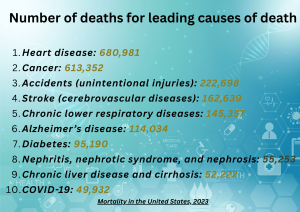
The Top 11 Deadliest Diseases
Top 11 Deadly Diseases in the world. Heart Disease Stroke Chronic Obstructive Pulmonary Disease Lower Respiratory Infections Neonatal Conditions Trachea, Bronchus, and Lung Cancers Alzheimer’s Disease and Other Dementias Diabetes Mellitus Dehydration due to diarrheal diseases Tuberculosis Cirrhosis
Risk Factors for CAD
Risk Factors for CAD Coronary Artery Disease develops when the coronary arteries that supply blood to the heart become narrowed or blocked usually due to a buildup of plaque (atherosclerosis). It ocures due to bad eatting habbits and unhealthy living style Several modifiable and non-modifiable risk factors contribute to its development. Modifiable Risk Factors (can be changed or controlled)High Blood Pressure (Hypertension) Damages artery walls and accelerates plaque buildup.High Cholesterol (especially LDL cholesterol) Contributes to plaque formation in arteries.Smoking and Tobacco Use Damages blood vessels, lowers oxygen in the blood, and promotes clotting.Diabetes or Insulin Resistance High blood sugar damages blood vessels over time.Obesity and Overweight Increases strain on the heart and often accompanies other risk factors.Physical Inactivity Leads to poor cardiovascular fitness, obesity, and higher blood pressure.Unhealthy Diet Diets high in saturated fats, trans fats, salt, and sugar contribute to atherosclerosis.Excessive Alcohol Use Raises blood pressure and can lead to heart muscle damage.Chronic Stress May lead to harmful coping behaviors and direct physical effects on heart health.

Low-Glycemic Foods (GI 0–54): Eat These Daily
Low-Glycemic Foods (GI 0–54): Eat These DailyWhat Are Low-Glycemic Foods?
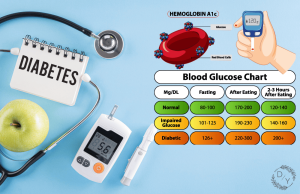
10 Signs Showing That Your Blood Sugar Is Very High
10 Signs Showing That Your Blood Sugar Is Very High Glucose is the body’s main source of energy, and its levels in the blood determine your blood sugar status. After eating, glucose enters your bloodstream and is sent to your cells to be used as fuel.Glucose is the body’s main source of energy, but too much or too little can lead to serious health problems. Maintaining a healthy and balanced blood sugar level is essential for proper body function and long-term well-being.High blood sugar, or hyperglycemia, can occur when your body doesn’t produce enough insulin or can’t use insulin properlyHyperglycemia is one of the most serious health conditions related to blood sugar imbalance. If left unmanaged, it can become life-threatening, leading to complications such as diabetic ketoacidosis, organ damage, or even coma. Persistent high blood sugar is a hallmark symptom of type 1 diabetes, a condition in which the body fails to produce insulin, the hormone necessary for regulating glucose levels in the blood.If not managed early, high blood sugar can lead to serious health problems, including kidney damage, nerve issues, vision problems, and cardiovascular complications.
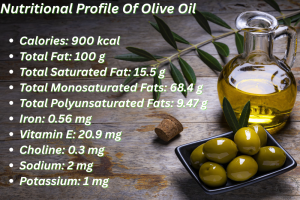
OLIVE OIL
Olive (Olea europaea) is a tree with edible fruit, leaves, and seeds,and from that seed olive oil is extracted. Olive oil is a natural oil extracted from olives, the fruit of the olive tree, and is a staple in many Mediterranean diets and is also used as a medicin. Renowned for its health benefits olive […]

3 Heart Health Tips for Women
Heart attacks and heart disease are one of the top health issues in today world and in women its most common. Read these heart health tips to build up a healthy heart starting today! Human beaing are wonderful creation and heart is the main organ of a human body and its a heart that need more care […]
